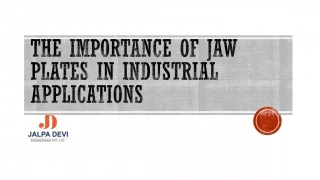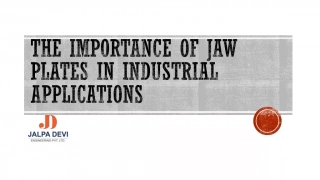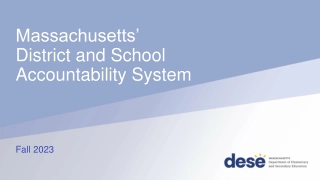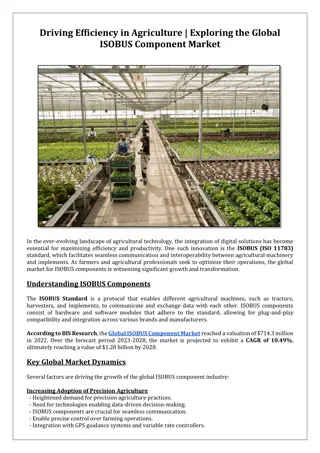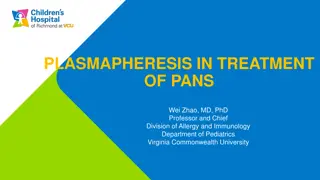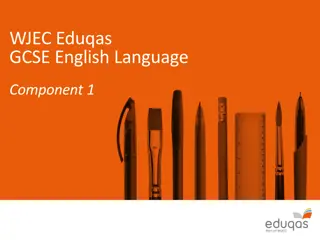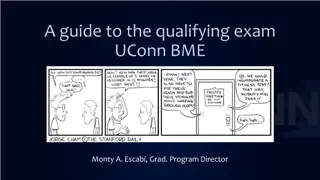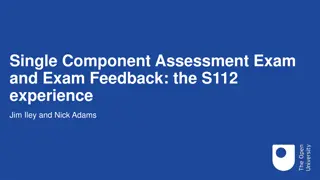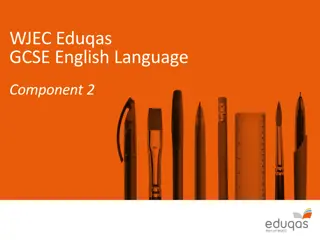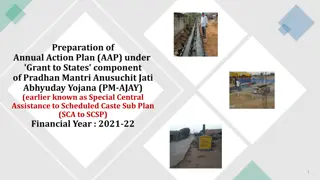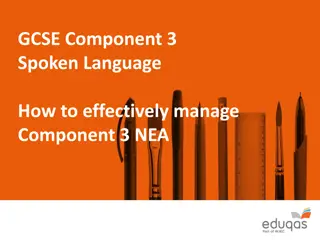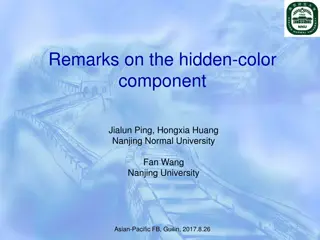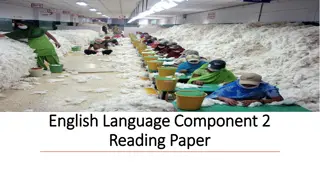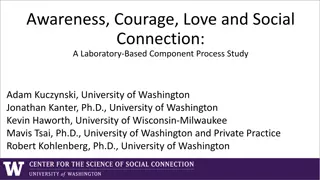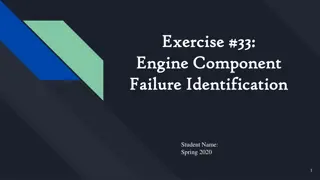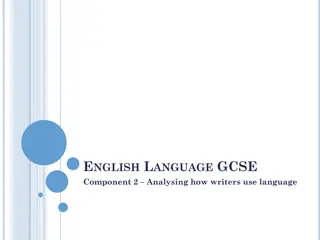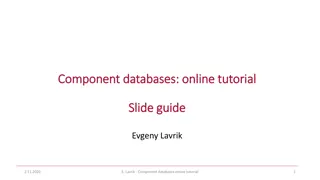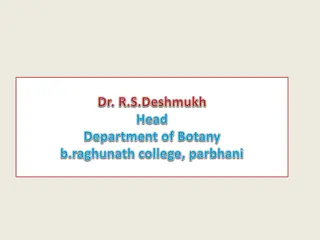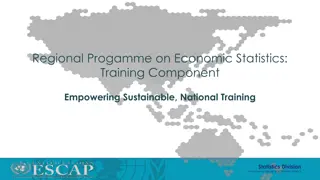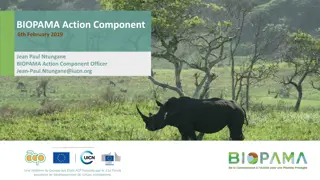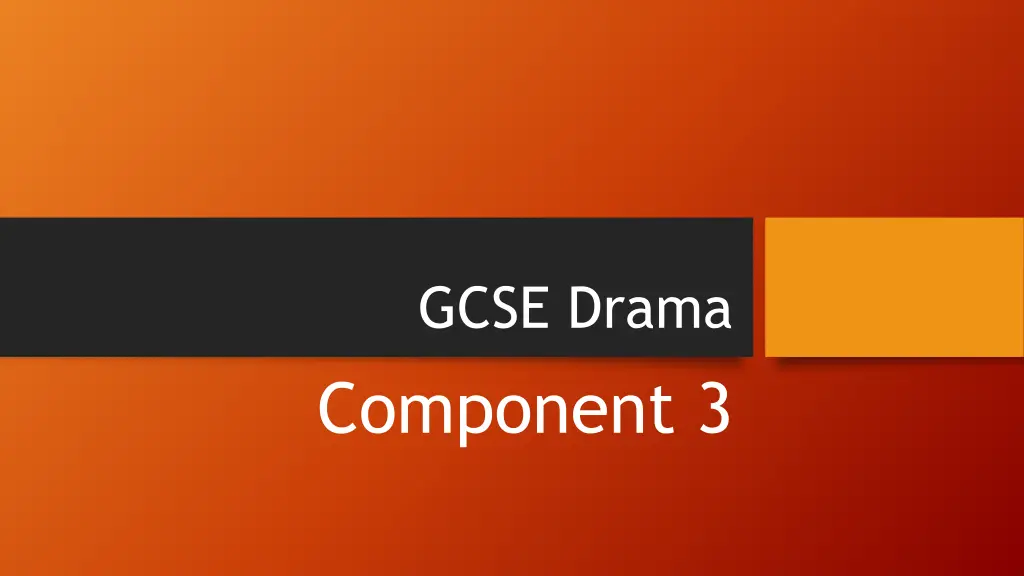
Performing Arts GCSE Drama Component 3 Guide
Learn about GCSE Drama Component 3, a practical assessment focusing on theatrical skills and performances. Discover how to choose the right play, prepare for assessments, and excel in your GCSE Drama journey.
Download Presentation

Please find below an Image/Link to download the presentation.
The content on the website is provided AS IS for your information and personal use only. It may not be sold, licensed, or shared on other websites without obtaining consent from the author. If you encounter any issues during the download, it is possible that the publisher has removed the file from their server.
You are allowed to download the files provided on this website for personal or commercial use, subject to the condition that they are used lawfully. All files are the property of their respective owners.
The content on the website is provided AS IS for your information and personal use only. It may not be sold, licensed, or shared on other websites without obtaining consent from the author.
E N D
Presentation Transcript
GCSE Drama Component 3
Component 3 Texts In Practice This component is a purely practical component in which you are assessed on your ability to apply theatrical skills voice, facial expressions etc (AO2). It is marked by AQA examiners For this component you must complete two assessment tasks: Study and present a key extract (monologue, duologue or group performance) Study and present a second key extract (monologue, duologue or group performance) Both of these extracts must be from the same play as each other. Your contribution to each key extract performance is marked out of 20.
Picking the right play You must work on a play and show your understanding of that play during your contribution to the performance. Choosing the right play is critical. The play chosen must: have been professionally commissioned or professionally produced as a whole be a minimum of 35 minutes in duration if performed in full offer interpretive opportunities for performers and designers be rich and of substance in terms of content, context, theme and/or characterisation offer an appropriate level of theatrical challenge to you for you to achieve an excellent GCSE GCSE. The dilemma: is choosing the right play and who to work with? AQA has a list of suggested plays for GCSE Drama and information is on google drive as well as our suggestions.
Tips You need to play to your strengths; examiners aren t looking to see range . It is not about working with your best friend! Don t choose a play where you have to multi-role if you can t play a variety of different characters! 2 weeks before the exam we will have a full dress rehearsal with no mistakes! You are assessed on the range of theatrical skills demonstrated in your performance ie voice, gesture, movement, facial expressions etc. You have to provide a statement of dramatic intentions Teachers are not permitted to provide any guidance to students whilst the assessed performance is being carried out, however we can provide workshops.
Specialisms performing or design You must choose one specialism only. You have to choose the same specialism for both extracts. Performer -Between one and six students Monologue (one performer) Must be between two and five minutes. Duologue (two performers) Must be between three and ten minutes. Group performance (three or more performers) Must be between four and twenty minutes.
Key extract What is a key extract? It could be: the entire play minus the first line and the last line. It could be: all of act one. It could be: all of act two. It could be: the last five pages of act one and the first three pages of act two. It could be: the first three acts of Hamlet. It couldn t be: acts one and four of Romeo and Juliet. It must be continuous, in its form as an extract.
The play chosen must: be deemed age-appropriate by the Head of Centre who must submit a declaration to AQA confirming that he/she has approved the plays chosen for practical study (this must be given to the Examiner on the day of the visit, or the first day of the series of visits.) not be the set play you has studied for Component 1 not contravene the prohibited play combinations (which are as follows): Prohibited play combinations (play for practical can t match on more than one) Blood Brothers Playwright: Willy Russell Description: Musical/musical adaptation Performance style: Musical theatre Time period: 1965 1985
Editing Editing is, in this context, fundamentally changing what the playwright intended. You cannot edit any of the extracts. You cannot remove any swearing, or substitute a swear word for a milder swear word. You cannot take lines from one character and put them in the mouth of another character. You cannot add your own dialogue, or paraphrase that of the playwright.
What is abridging? Abridging is, in this context, reducing the length of the extract, without changing its meaning, plot or structure. You can edit out characters from the extract. You can edit out lines/paragraphs/exchanges/scenes from the extract. (It must still be coherent.) You can take out lines from a long soliloquy (for example) to make it shorter, whilst retaining its meaning. You are essentially shaving the edges off the square peg to fit into the round hole.
Choosing plays and groups We will split into groups naturalistic multi-rolling Look at Google drive - Component 3 look at the play recommendations. We will start to choose the play/extracts/check timings.

